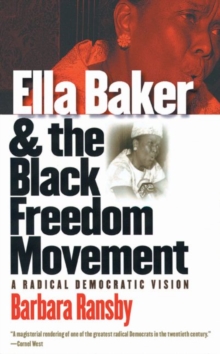
Sex and Citizenship in Antebellum America PDF
by Nancy Isenberg
Part of the Gender and American Culture series
Description
With this book, Nancy Isenberg illuminates the origins of the women's rights movement. Rather than herald the singular achievements of the 1848 Seneca Falls convention, she examines the confluence of events and ideas--before and after 1848--that, in her view, marked the real birth of feminism. Drawing on a wide range of sources, she demonstrates that women's rights activists of the antebellum era crafted a coherent feminist critique of church, state, and family. In addition, Isenberg shows, they developed a rich theoretical tradition that influenced not only subsequent strains of feminist thought but also ideas about the nature of citizenship and rights more generally.
By focusing on rights discourse and political theory, Isenberg moves beyond a narrow focus on suffrage. Democracy was in the process of being redefined in antebellum America by controversies over such volatile topics as fugitive slave laws,
temperance, Sabbath laws, capital punishment, prostitution, the Mexican War, married women's property rights, and labor reform--all of which raised significant legal and constitutional questions. These pressing concerns, debated in women's rights
conventions and the popular press, were inseparable from the gendered meaning of nineteenth-century citizenship.
Information
-
Download - Immediately Available
- Format:PDF
- Pages:344 pages
- Publisher:The University of North Carolina Press
- Publication Date:09/11/2000
- Category:
- ISBN:9798890868022
Other Formats
- Paperback / softback from £33.95
Information
-
Download - Immediately Available
- Format:PDF
- Pages:344 pages
- Publisher:The University of North Carolina Press
- Publication Date:09/11/2000
- Category:
- ISBN:9798890868022










